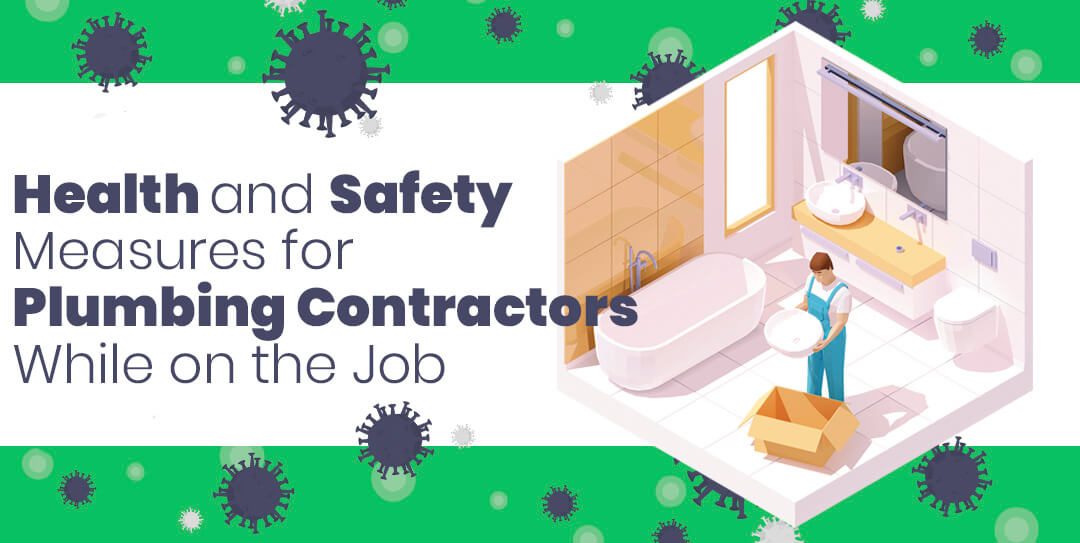As the spread of the COVID-19 gradually reached every corner of the U.S., the White House made a response announcement stating that plumbers and other essential critical workers may continue normal business operations. As a result, plumbing contractors and companies had to adjust to what’s become known as “the new normal” if they wanted to continue to get more clients.
The plumbing job often presupposes working in unsavory conditions and getting your hands dirty. However, keeping normal operations doesn’t mean work as usual. It means you need to take special measures to limit your and your team’s possible exposure to the virus. Keeping your employees and customers safe is a must amidst this pandemic. It’s also a sign of encouragement for them to choose your company over others, less-concerned service providers.
On this page, you will find the necessary information about how people can catch the virus, and how to limit everyone’s exposure to the virus, that in some way interacts with your plumbing business.
How COVID-19 Can Spread
The most important thing you need to know about coronavirus is that it can be transferred from person to person through physical contact, respiratory droplets (when someone sneezes, coughs, or even talks), and through touch surfaces (door handles, using the same tools, etc.). This is why social distancing (keeping at least 6 feet apart from others), frequent handwashing, and disinfection of the items you touch is imperative to limit the chance of getting the virus or infecting someone else with it.
Recommendations for COVID-19 Prevention Measures for Plumbers
The challenges of navigating your plumbing business through a global pandemic are many, but there is still a lot you can do to mitigate the risk of contracting the virus.
#1 Call your customers ahead of time
This may have already been part of how you approach your service calls, but if it hasn’t, now is the time to include it. Before heading to a customer’s house or business, call them to inquire if there has been someone from the household or company with symptoms of COVID-19. Of course, this doesn’t guarantee that you will go to a virus-free environment, but at least it helps limit your exposure to coronavirus.
#2 Practice social distancing on and off the job
Keep at least 6 feet away from customers, suppliers, and coworkers. These measures are extremely important in all social settings, not just outside of your working hours. Be especially mindful when working in the homes of elderly people or other customers that fall in the at-risk group. Ask them to keep their distance from you as well.
#3 Supply your team with the necessary PPE
Possibly the most important part of doing your job safely is to educate your team on how important it is for them to wear their personal protective equipment (PPE) at all times while on the job. It matters both for their health and for giving the customer some peace of mind.
At the very least, your team needs certified masks, gloves, and coveralls.
#4 Wash your hands and disinfect your tools more often
In plumbing, having dirty hands and greasy tools kind of comes with the territory. However, find the time to put extra effort into washing them both frequently.
Hands: the CDC recommends washing your hands for at least 20 seconds at a time using water and soap. This is mandatory, especially after coughing, blowing your nose, sneezing, or being in a public space (e.g., transportation, grocery store, etc.). If access to a handwashing facility is limited or unavailable, be sure to supply yourself and your team with hand sanitizers containing at least 60% alcohol.
Tools: all tools should be disinfected before and after use, and it is best to avoid tool sharing as much as possible. At the end of each shift, thoroughly wash the tools to remove grease and dirt before disinfecting them with a diluted bleach solution.
#5 Encourage symptomatic employees to stay home
Do a health check each morning when your team comes in. Measure their temperature and inquire about any signs of fever, coughing, or shortness of breath. If they have any of these, send them home immediately. If their symptoms are more significant, they should consult with their doctor.
In this case, it’s important to find out if the sick employee has interacted with other team members and inquire about their health as well.
#6 Stay informed about your team’s family condition
If one or more of your employees have a sick family member at home, encourage them to not show up for work until the situation has been resolved. Most people who contract COVID-19 have no symptoms, but they can still infect others. Keep that in mind and inquire about your employees’ families as well as about their personal health.
#7 Offer virtual services and consultations (whenever possible)
Despite all innovations in technology, plumbing is still an old-school type of business in the sense that it requires physical labor. However, not every plumbing job requires you to make a house visit.
If you offer estimates, why not ask your customers to call you via Skype, FaceTime, or another video chat platform where they can “walk you” through the problem they are experiencing or the request they have. Of course, that won’t be enough in many cases, but it can still help mitigate exposure to the virus. It also shows your customers you’ve put thought into creating a safe business model in response to the outbreak.
#8 Update your website and Google My Business
If you’ve started doing virtual estimates and consultations, have changed your hours of operations, or there are other changes to your business as a result of the pandemic, you need to inform your customers about it. Update your website by creating a dedicated page about your response to COVID-19, and don’t forget to make a related post on Google My Business, so everyone knows you’re available for work.
Make sure to check back with this page as we will be updating frequently with new information. For additional resources about COVID-19, measures, and pandemic updates, feel free to check the official CDC and World Health Organization websites.



